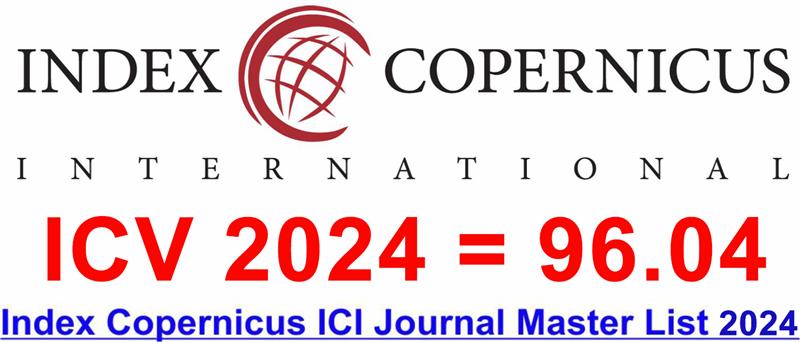Effectiveness Of Card Games in English Vocabulary Learning Among Chinese Public Primary School Esl Students
DOI:
https://doi.org/10.60072/ijeissah.2024.v2i02.004Abstract
This study investigates the effectiveness of using card games in learning English vocabulary among Malaysian ESL students at a Chinese primary public school. This research involved 27 Year 3 primary school students at the Common European Framework of Reference for Languages (CEFR) A1 level. A quantitative analysis method is utilized for data collection, and the instruments contained a pre-test and a post-test to examine this game-based learning technique. The findings illustrate that over 90% of participants’ English proficiency improved. The study concluded that the card game teaching method is effective in being used as a pedagogical tool for learning English vocabulary among Chinese public primary school ESL students.
Keywords:
Game-Based Learning, Card Games, ESL Students, EffectivenessReferences
Aquia, T. (2022). Teaching Arkansas Standards through Games: The Lemonade Stand Game — ACRE. ACRE. https://www.socialstudiesar.org/blog/lemonadestand
Chai, K., & Yunus, M. (2021). Vocabulary Connect Four Circles (VC4C) card game for Malaysian young learners’ vocabulary learning. International Journal of Academic Research in Business and Social Sciences, 11(1), 552-574. https://doi.org/10.6007/ijarbss/v11-i1/8406
Che Ahmad, C. N., Shaharim, S. A., & Abdullah, M. F. N. L. (2017). Teacher-Student Interactions, Learning Commitment, Learning Environment and Their Relationship with Student Learning Comfort. Journal of Turkish Science Education, 14(1), 57-72. https://www.tused.org/index.php/tused/article/download/137/93
Depari, R. O., Azwandi, A., & Syahrial, S. (2017). The effect of picture card games to students at elementary school’s vocabulary mastery. Journal of Applied Linguistics and Literature, 2(1), 1-12. https://doi.org/10.33369/joall.v2i1.5859
Ganyaupfu, E. M. (2013). Teaching methods and students’ academic performance. International journal of humanities and social science invention, 2(9), 29-35.
Gee, J. P. (2003). What video games have to teach us about learning and literacy. Computers in entertainment (CIE), 1(1), 20-20. https://doi.org/10.1145/950566.950595
Gutierrez, A. F. (2014). Development and effectiveness of an educational card game as supplementary material in understanding selected topics in biology. CBE—Life Sciences Education, 13(1), 76-82. https://doi.org/10.1187/cbe.13-05-0093
Idris, M. I., Said, N. E. M., & Tan, K. H. (2020). Game-based learning platform and its effects on present tense mastery: Evidence from an ESL classroom. International Journal of Learning, Teaching and Educational Research, 19(5), 13-26. https://doi.org/10.26803/ijlter.19.5.2
Kim, Y., & Steiner, P. (2016). Quasi-experimental designs for causal inference. Educational psychologist, 51(3-4), 395-405. https://doi.org/10.1080/00461520.2016.1207177
Liu, F., Rezvani, E., & Namaziandost, E. (2021). Using games to promote English as a foreign language learners’ willingness to communicate: Potential effects and teachers’ attitude in focus. Frontiers in psychology, 12, 762447. https://doi.org/10.3389/fpsyg.2021.762447
Lukas, B. A., Patrick, F. I. A., Chong, G., Jaino, N. B., & Yunus, M. M. (2020). Using U-NO-ME card game to enhance primary one pupils' vocabulary. International Journal of Learning, Teaching and Educational Research, 19(5), 304-317. https://doi.org/10.26803/ijlter.19.5.19
Mitchell, H. Q., & Malkogianni, M. (2018). Get Smart Plus 3 Student’s Book. MM Publications.
Plass, J. L., Homer, B. D., & Kinzer, C. K. (2015). Foundations of game-based learning. Educational psychologist, 50(4), 258-283. https://doi.org/10.1080/00461520.2015.1122533
Piaget, J. (2013). Play, dreams and imitation in childhood. Routledge. https://doi.org/10.4324/9781315009698
Qian, M., & Clark, K. R. (2016). Game-based Learning and 21st century skills: A review of recent research. Computers in human behavior, 63, 50-58. https://doi.org/10.1016/j.chb.2016.05.023
Rankin, Y. A., Tibi, S., Kennington, C., & Han, N. E. (2021). In-Game Social Interactions to Facilitate ESL Students' Morphological Awareness, Language and Literacy Skills. Proceedings of the ACM on Human-Computer Interaction, 5(CHI PLAY), 1-25.
https://doi.org/10.1145/3474706
Razali, W. N., Amin, M. N., Kudus, N. V., & Musa, M. K. (2017). Using card game to improve vocabulary retention: A preliminary study. International Academic Research Journal of Social Science, 3(1), 30-36.
Saha, S., & Singh, S. (2016). Game based language learning in ESL classroom: A theoretical perspective. ELT Vibes: International E-Journal for Research in ELT, 2(3), 20-34.
Salen Tekinbas, K., & Zimmerman, E. (2003). Rules of play: Game design fundamentals.
Singh, P., Hoon, T. S., Nasir, A. M., Ramly, A. M., Rasid, S. M., & Meng, C. C. (2021). Card Game as a Pedagogical Tool for Numeracy Skills Development. International Journal of Evaluation and Research in Education, 10(2), 693-705. DOI: http://doi.org/10.11591/ijere.v10i2.20722
Smith, D. R., & Munro, E. (2009). Educational card games. Physics Education, 44(5), 479. DOI: https://doi.org/10.1088/0031-9120/44/5/004
Teo, R., & Wong, A. (2000). Does problem-based learning create a better student: a reflection?
Wong, C. H. T., & Yunus, M. M. (2021). Board games in improving pupils’ speaking skills: a systematic review. Sustainability, 13(16), 8772. https://doi.org/10.3390/su13168772
Zhong, Q. (2019). Design of game-based collaborative learning model. Open Journal of Social Sciences, 7(7), 488-496. DOI: 10.4236/jss.2019.77039
























